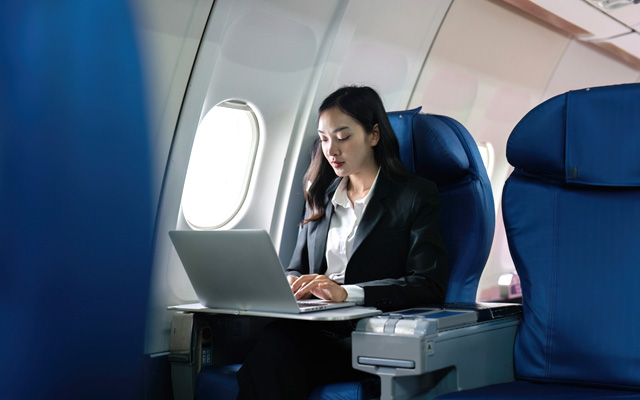FCM Travel Asia’s managing director, Bertrand Saillet, foresees business travel to remain strong in 2024, as in-person meetings remain the most productive way for businesses to operate.
The year 2024 is looking positive for business travel, where the sector will continue its upward trajectory, although corporate travel programmes’ budgets will be tested.
Studies have shown that business travel correlates to economic growth. We are seeing corporate travellers take advantage of being able to combine both business and leisure travel. There is also a real business focus on face-to-face meetings and collaborations, given the evidence that in-person meetings are the most productive way for businesses to operate.

Business travel is still a high priority despite economic impacts. Lower airfares in 2024 will open options for budget-conscious business flyers. While economic uncertainty posed concerns for any business, there would be a meeting point in the travel industry with falling travel costs. In October 2023, a survey by the Global Business Travel Association found about 70 per cent of corporate travel buyers expect to increase or keep their travel budgets in 2024.
International demand to continue into 2024, and fare rises of three to seven per cent is forecasted in 2024. Asia has seen an increase in economy class fares by 21 per cent and 17 per cent in business class fares year to date 2023 versus 2019. Mumbai to London has seen the highest increase of 24 per cent in economy class fares followed by Mumbai to Delhi. Business class fares from Mumbai to London saw a 14 per cent increase in 2023 versus 2019. Both airports from Shanghai to Singapore have seen an increase in business class fares. Shanghai Hong Qiao Airport saw a 24 per cent increase in fares and Shanghai Pudong Airport saw a 20 per cent increase.
Easing of visa requirements. China, the world’s second-largest economy, has granted unilateral visa-free travel for holders of ordinary passports from France, Germany, Italy, the Netherlands, Spain, Norway, and Malaysia and signed agreements on mutual visa exemption with over 150 countries which enable citizens to travel to China without a visa.
Bleisure trips are on the rise. Bleisure travel to continue to rise in 2024 as the world returns to normality, flight capacity continues to grow, and collaboration still is a priority. As we see a fixation on productivity amid economic pressures, organisations are looking to meet and gather face-to-face. Employees are taking advantage of increased business travel to extend their trips for joint leisure purposes.
Leveraging technology for smoother travel. Technology will play a key role not only in enhancing the travellers’ experience but also in supplying data-driven insights and real-time updates. For example, FCM’s AI assistant, SAM (Smart Assistant for Mobile), proactively informs travellers of flight delays and recommends the nearest lounge instead of waiting at the gate.
Increased focus on sustainable initiatives. As sustainability has risen to the top of the business agenda, more companies join the race to net zero. To empower companies, FCM Consulting has partnered with CAPA – Centre for Aviation, which pairs the team’s unique methodology with the CAPA Envest Global Sustainability Benchmarking Report. FCM is the only global travel management company (TMC) to currently have access to this data which provides a comparable ranking of airlines incorporating over 10 ‘sustainability parameters’ and is regarded by CAPA as the industry’s single source of truth on emissions, benchmarking airlines, and their performance as they transition to net zero operations.
Regardless of which TMC is selected; enterprises can get a scorecard to learn how their air travel programme and preferred airlines score on various sustainability metrics. As companies become more astute on all things sustainability-related, TMCs must be able to provide a deeper, and more accurate analysis of travel impact with measurable benefits.
 Bertrand Saillet is FCM Travel Asia’s managing director.
Bertrand Saillet is FCM Travel Asia’s managing director.





















